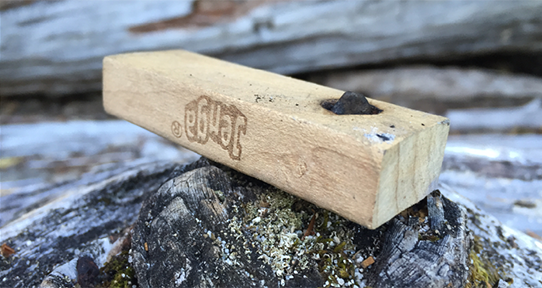Youth Experiences Project: Police discretion with youth who use illicit substances

Read Youth Experiences: How police interactions impact youth who use drugs
Police discretion is an officer’s authority to decide how and when to enforce the law. Such discretion can have beneficial outcomes, allowing for more effective uses of scarce resources, proper exercise of professional judgment, fewer referrals to court for non-violent offences and more positive interactions with the public. Alternatively, discretion can be seen as unfair, (based on factors such as race and ethnicity, socio-economic status, homelessness, age, sexuality and gender) and may create poor police-community relations.
The purpose of this research, also known as the "Police discretion with high risk substance using youth" grant, is to learn more about interactions between the police and substance using youth 16-30 and how these experiences affect their lives. We began the research proposal to learn more about youths’ circumstances and experiences with the police in regard to two major issues: (1) street checks, the practice of stopping, questioning and documenting (i.e. carding) individuals when no particular offense is being investigated, and (2) police discretion on whether to charge individuals caught for possession of drugs. Scott Macdonald (CISUR), the principal investigator and co-investigators from UVic, UFV, U of T and Queens were interested in knowing more about what influences decisions by police on whether and how to intervene with substance using youth. However, the research team had many other questions that ranged from youths’ perceptions of police and procedural justice, social support, stigma and discrimination, the actual encounters youth had with police, overdose, normalization of marijuana and youths’ recommendations on improving relationships between youth who use illicit substances and police.
This research will produce valuable information that can be applied to the development of more consistent standards for how police interact with youth who use substances. We hope this research will be of interest to both local communities, policy-makers and the police. For those who work with substance-using youth, this research will give local, relevant and current information that may help them to better support youth in ways that actually work for and with them.
Academic publications
- Factors contributing to frequent police contact among young people: a multivariate analysis including homelessness, community visibility, and drug use in British Columbia, Canada (2021)
- Young People Who Use Drugs Views Toward the Power and Authority of Police Officers (2021)
- Event-level outcomes of police interactions with young people in three non-metropolitan cities across British Columbia, Canada (2020)
- “Accidental Intimacies”: Reconsidering Bodily Encounters Between Police and Young People Who Use Drugs (2020)
- Police discretion to charge young people who use drugs prior to cannabis legalization in British Columbia, Canada: a brief report of quantitative findings (2020)
- Police Contact, Procedural Injustice, and Drug Use (2020)
- "It's Like Super Structural" - Overdose Experiences of Youth Who Use Drugs and Police in Three Non-Metropolitan Cities Across British Columbia (2020)
- Respondent-Driven Sampling With Youth Who Use Drugs: A Mixed Methods Assessment (2019)
Other resources (reports, infographics, etc)
About the research
The project was conducted in three communities in 2017/18 - Victoria, Chilliwack and Prince George. In each community, we recruited 150 youth, aged 16-30, (100 who had used an illicit drug weekly in the past 6 months (including marijuana) and 50 who had not), to take part in an interview-led questionnaire. Respondent Driven Sampling (RDS) was used to recruit participants, where each youth who completed a questionnaire was given 5 coupons to hand out in their network. Youth received $5 if the coupon came back to the research team.
38 youth who completed the questionnaire were contacted and agreed to take part in an additional qualitative interview. We asked them to talk more about their specific encounters with police and how these had affected their perceptions and level of trust around police, the specific and local context within their communities of police and substance use, including the ways youth have experienced discrimination. The team also asked about experiences with overdose and their recommendations to improve relationships between police, youth and people who use drugs.
Progress to date
YEP has completed data collection and published several peer-reviewed papers, as well as a bulletin and other publications (see resources tab).
The project has secured some funds from the Law Foundation of BC to spend time talking to police about the experiences and recommendations from youth we talk about in our report. Working with current law students, YEP is undertaking a review of the published literature on procedural justice related to youth in BC, and of current policies, practices, and laws that relate to youth who use drugs. We are in the process of an ethics review to get permission to interview police in all three communities (Victoria, Chilliwack and Prince George) to learn more about what they see as challenges and policy gaps in their work, and learn more about trainings and ongoing projects that focus on increasing trust and understanding between police and youth (especially those who use drugs and/or racialized). We hope these conversations with police will create pragmatic and realistic ways to see how the recommendations from youth can be incorporated in current and future plans for police.
We are currently applying for a Vancouver Foundation Develop grant to help gather youth, youth service providers and police together to come up with ideas to further these goals.
Funding bodies
Researchers
- Dr. Scott Macdonald (PI)
- Dr. Bernie Pauly
- Dr. Eric Roth
- Dr. Scot Wortley
- Dr. Mikael Jansson
- Dr. Steven Baron
- Dr. Tim Stockwell
- Dr. Zina Lee
- Dan Reist
- Dr. Cecilia Benoit
- Lachowsky,. N.
- Dr. Karen Urbanoski
- Dr. Marion Selfridge
- Card, Kiffer
- Greer, Alissa
